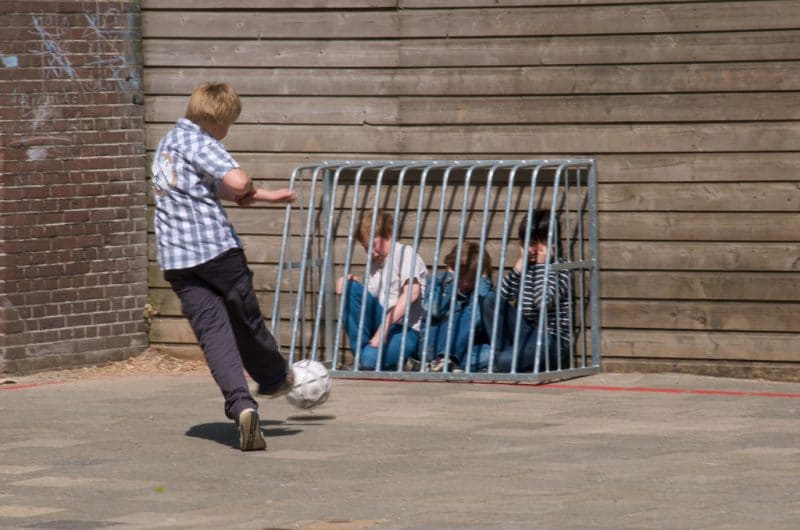
October is National Bullying Prevention Month, a campaign that PACER (Parent Advocacy Coalition for Educational Rights) has sponsored every year since 2010.
Table of Contents
How to Prevent Bullying
This year, National Stop Bullying Day falls on October 14. Even if your children are not victims of bullying, they have likely witnessed this ugly phenomenon. While about 28% of middle and high school students have been a victim of bullying, over 70% have witnessed bullying. Since bystander intervention is essential to reducing bullying, parents have a responsibility to prepare their children for dealing with bullies, even if they have never been a victim. Here are five strategies that you can teach your kids.
1. Don’t React
Bullies often feed off the anger or fear of their victims, and it is important not to give them what they want. When bullies see the reactions they are looking for, they are likely to keep targeting victims.
Victims might think showing their anger or fear will make the bullying stop, but it usually encourages the bully. Instead, teach your children to respond calmly, but firmly. If bullies don’t get the emotional reaction they want, they have no motivation to keep harassing their victims.
2. Don’t Participate
Bullies like to have an audience for their harassment—it can make them feel powerful. Just being a bystander and doing nothing can encourage the bully.
Additionally, spreading rumors and gossip can encourage the bullies who initiate rumors. Teach your kids not to participate in or encourage bullying, even if their friends do. Help them empathize with the victims so they will want to help them instead of hurt them.
3. Get Help
Whether or not your child is a victim or a bystander, he or she should feel comfortable getting help from an adult. By middle school, confident teenagers can diffuse many situations without help, but all students should feel comfortable appealing to authority if the situation gets out of hand. Teach your kids to get help from teachers or other trusted adults when they are bullied or when they witness bullying.
4. Communicate
Make sure your children feel comfortable talking to you about their school experiences. Ask your kids about their relationships with other students. Ask them about what happens in school. If your kids know they can come to you for help with problems, you can help before problems become severe. Show your kids that you will support, love, and listen to them no matter what.
5. Don’t Bully
As a parent, you want to assume your child would never torment other students, but this is not a safe assumption. You might think your child is incapable of bullying, but all parents—even the ones of bullies—are also thinking that.
Be aware of your child’s moods and actions. You might not know what’s going on in school, but negative home behavior could indicate bullying. Your child’s insecurities could contribute to a need to bully. Children may not yet have enough empathy to see the damage that they are doing. Teach your children not to bully and help them deal with their insecurities in a more constructive way.
Your Role as a Parent
Preparing your child is the most important thing that you can do to stop bullying, but sometimes you may need to take a more involved role. If bullying gets particularly bad, talk to teachers or administrators at your kid’s school. Your intervention is particularly crucial if any students are in physical danger. You may need to insist educators take bullying seriously so they deal with problems quickly and safely.